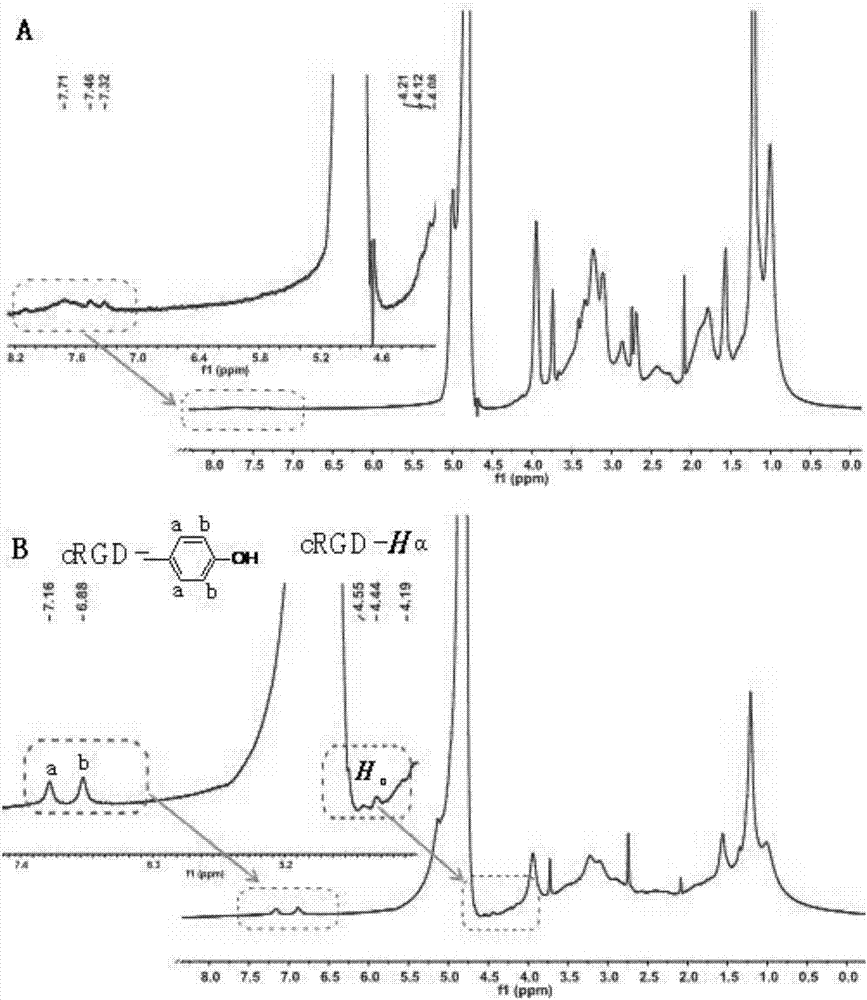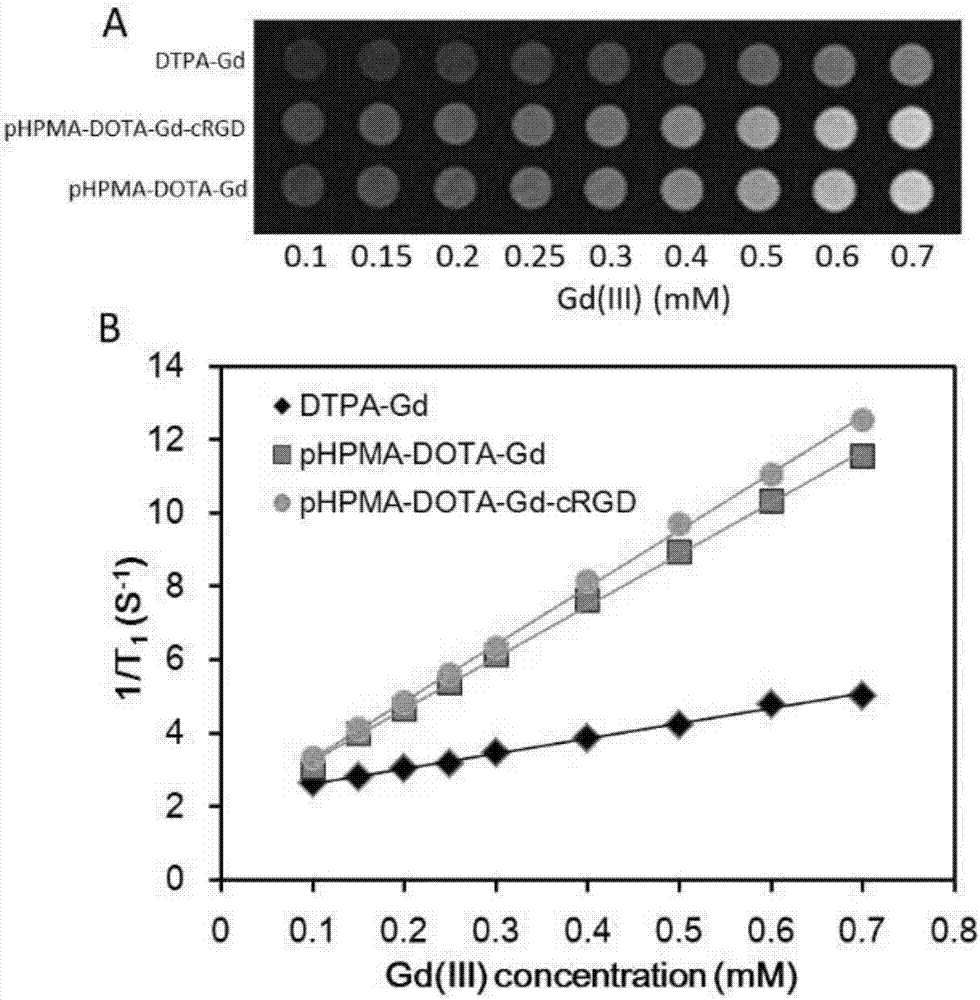Biodegradable poly-HPMA-Gd magnetic resonance imaging probe and preparing method thereof
A magnetic resonance imaging and biodegradation technology, applied in the field of medical imaging, can solve problems such as difficult to achieve satisfactory imaging effects, low sensitivity and non-specificity, achieve high-efficiency biocompatibility, increase aggregation, and increase passive targeting The effect of the ability
- Summary
- Abstract
- Description
- Claims
- Application Information
AI Technical Summary
Problems solved by technology
Method used
Image
Examples
Embodiment 1
[0042] A biodegradable polymeric HPMA-Gd magnetic resonance imaging probe, the chain structure is as follows:
[0043]
[0044] Among them: m:n:o=35~45:410~450:65~70;
[0045]
[0046] The order of the C, B and A groups in the system is not fixed, and the R group can be connected to any one of C, B and A.
Embodiment 2
[0048] On the basis of embodiment 1:
[0049] Wherein, R1 is SH, m:n:o=35:410:65.
[0050] The average molecular weight of the magnetic resonance imaging probe is 85KDa.
Embodiment 3
[0052] On the basis of embodiment 1:
[0053] Wherein, R1 is not SH, m:n:o=45:450:70.
[0054] The average molecular weight of the magnetic resonance imaging probe is 94KDa.
PUM
| Property | Measurement | Unit |
|---|---|---|
| molecular weight | aaaaa | aaaaa |
| molecular weight | aaaaa | aaaaa |
| molecular weight | aaaaa | aaaaa |
Abstract
Description
Claims
Application Information
 Login to View More
Login to View More - R&D
- Intellectual Property
- Life Sciences
- Materials
- Tech Scout
- Unparalleled Data Quality
- Higher Quality Content
- 60% Fewer Hallucinations
Browse by: Latest US Patents, China's latest patents, Technical Efficacy Thesaurus, Application Domain, Technology Topic, Popular Technical Reports.
© 2025 PatSnap. All rights reserved.Legal|Privacy policy|Modern Slavery Act Transparency Statement|Sitemap|About US| Contact US: help@patsnap.com



